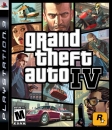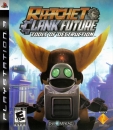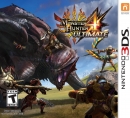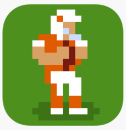RolStoppable said:
The reason why the battle over which generation Switch belongs in continues to be a thing is because the initial "Nintendo exited the home console market" argument didn't stick. The PlayStation Vita sold only ~15m units lifetime and forced Sony to exit the handheld market which was the first such occurence since Sega called it quits in the home console market after the Dreamcast had failed, and we all know how significant of a defeat such an occurence is in the console wars. So because Nintendo's Wii U sold about the same amount as the Vita, there was a strong desire that Nintendo had to have failed equally. This is what brought us "Nintendo exited the home console market" in the first place, a nonsense argument that was pitched by the PS fanbase. However, there was never anywhere close to a majority in the gaming community in late 2016/early 2017 who was willing to consider such a statement reasonable. That's why the conversation moved on to "Switch is 8th gen" because if Nintendo didn't have to make an exit like Sony, at least they should have lost so bad that they had to do the embarrassing thing of launching another console during the same generation. That's what behind this. If you've observed this over the years, you may have noticed that the people who have tried to convince themselves that Switch is 8th gen have kept making bad Switch lifetime predictions; not just their initial predictions, but each update they make continues to be wrong. On the other hand, those who've been able to put Switch in the correct generation have been much better with their predictions, because their expected end of Switch's lifecycle is far further in the future, so they calculate lifetime sales accordingly. So while on one hand it is annoying that people are in denial of Switch being in the same generation as the PS5 and XS, it provides continuous entertainment on the other hand because the "Switch is 8th gen" crowd keeps making bad Switch predictions, both in sales and expected lifecycle. The latest hot topic that is emerging is whether or not the upcoming Switch revision is a revision or a new generation, and that's derived from the same premise as which generation Switch belongs to. ... That being said, here's a rundown of the timeframe in which console generations have been launched: Gen 9: 2017-2020
Gen 8: 2011-2013
Gen 7: 2004-2006
Gen 6: 1998-2001
Gen 5: 1994-1996
Gen 4: 1987-1990
Gen 3: 1983-1986
Lost Gen: 1980-1982
Gen 2: 1976-1978
Gen 1: 1972-1975 Generations are defined by when consoles are launched, not by when their lifecycles end, hence why the Dreamcast is considered gen 6 despite its lifecycle coming to an end before Nintendo's GameCube and Microsoft's Xbox arrived on the market. Also, an especially easy way to determine a generation is to look whether a console succeeds another one by the same manufacturer, hence why both the Dreamcast and Xbox 360 constitute a new generation despite launching only 4 years after their respective predeccessor. If you look at the list above, you'll notice that the launch timings of each generation fall into a 3-4 year window, although including every single oddity in console history would extend some of these timeframes to 5 years. If someone believed that Switch was gen 8, then they'd get the first 7-year-timeframe for a generation (2011-2017). | 
































































